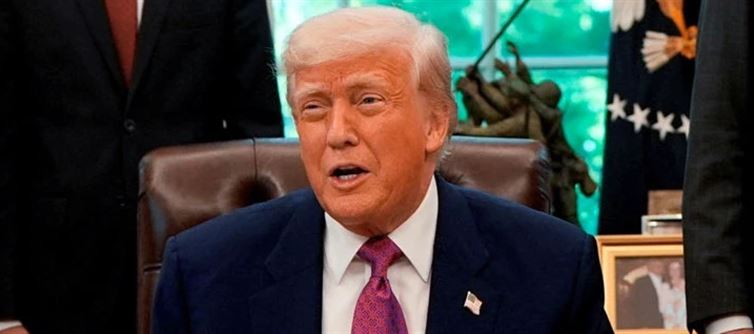
Following multiple lawsuits claiming trump has overreached himself and placed the nation's trade policy at his mercy, a three-judge panel at the US court of international Trade in New York rendered its decision.
Trump has stated on numerous occasions that the tariffs would compel manufacturers to return manufacturing jobs to the united states and produce sufficient income to lower federal budget deficits.
He suggested he would simply set the rates himself if the terms were unacceptable, using the tariffs as a negotiation tool to pressure other countries into negotiating accords that favored the US.
A national emergency "that has decimated American communities, left our workers behind, and weakened our defense industrial base - facts that the court did not dispute" is what white house spokesperson Kush Desai claimed trade deficits amounted to.
"We are still committed to using every executive power lever to address this crisis and restore American greatness," he stated.
However, since enacting import taxes would need congressional approval, trump may not have the threat of doing so to impose his will on the global economy as he had anticipated.
It's still unclear if the white house would halt all of its emergency electricity tariffs in response to the decision.
Trump may still be able to impose 150-day, 15% import duties on countries with which the US has a significant trade deficit.
According to the ruling, Section 122 of the Trade Act of 1974 grants the president this power.
The decision effectively rejected the legal foundations of several of Trump's signature policies and the most contentious acts of his second term, which has just been in office for four months.
Although the supreme court will most likely be asked to provide a definitive response, the administration's prompt filing of the notice of appeal is a severe blow.
Three judges heard the case: Gary Katzman, a former barack obama appointee; Jane Restani, nominated to the bench by previous President Ronald Reagan; and Timothy Reif, appointed by President Trump.
Referring to the 1977 international Emergency Economic Powers Act, the court noted, "The worldwide and retaliatory tariff orders exceed any authority granted to the president by IEEPA to regulate importation by means of tariffs."
It was submitted to the US court of international Trade, a federal court that handles civil cases pertaining to international trade law exclusively.
Trump has stated that he has the authority to take action to solve the trade deficits, which he describes as a national emergency, even though tariffs normally require congressional approval.
At least seven lawsuits have been filed against him, contesting the levies.
Because the US has had a trade deficit with the rest of the world for 49 years in a row, the plaintiffs contended that the emergency powers legislation does not authorize the use of tariffs and that even if it did, the trade deficit would not constitute an emergency.
In an attempt to close America's enormous and protracted trade deficits, trump levied tariffs on the majority of nations.
In an attempt to stop the illegal immigration and synthetic opioids flowing across the US border, he previously imposed taxes on imports from Canada, China, and Mexico.
His administration contends that the emergency use of tariffs by then-President richard Nixon in 1971 was authorized by the courts and that the "political" question of whether the president's justification for declaring an emergency is legal can only be decided by Congress, not the courts.
Global financial markets were rocked by Trump's Liberation Day tariffs, which caused many economists to lower the prognosis for US economic growth.
However, the biggest economy in the world seems to have been unaffected by the tariffs thus far.




 click and follow Indiaherald WhatsApp channel
click and follow Indiaherald WhatsApp channel